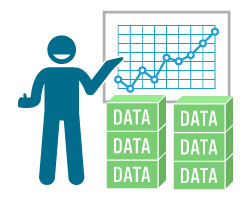Research, Frameworks, and White Papers
On this page, you will find our original research, frameworks, and white papers on thought leadership.
This is a webinar about our study on the ROI of Business Books. We shared preliminary findings prior to publishing our report where you can find detailed information about the study.

Data-Driven Thought Leadership
Thought leadership needs to add to the conversation among a community.
It cannot simply recycle the same old truisms as “new”.
Therefore, we believe thought leadership must:

Thought leadership doesn’t need to compete with just books and articles. It must compete with generative AI.
We believe in data-driven thought leadership. Not every piece of thought leadership requires original research, but it becomes a key differentiator.
We take the following approach when creating frameworks, validating assessments, or conducting research studies: